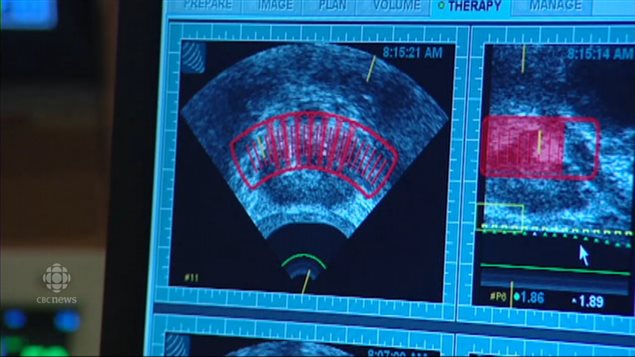Some men respond well to initial treatment for prostate cancer, but a new test could soon help predict those who will need further and more aggressive treatment.
Across North America 260,000 cases of prostate cancer are diagnosed each year. 50,000 men will not do as well as the others with just surgery or radiation. They will need additional treatment like chemotherapy and hormone therapy. But until now there was no reliable way of knowing who had the more aggressive cancer.
Researchers at Princess Margaret Cancer Centre in Toronto examined the outcomes of a group of men who had the initial cancer treatment. They found 70 per cent did well, but 30 per cent needed further therapy.
Genetic fingerprint reveals more aggressive cancer
“We compared the genetics or the DNA of cancers in the men who did well versus the men who did not do well and developed a signature, a genetic fingerprint of prostate cancers that don’t tend to do well if you just use surgery or radiotherapy alone,” said Dr. Robert Bristow, co-leader of the study.
ListenCustomized therapy would increase cures

By looking at the genes in a person’s cancer cells, doctors can determine in advance what would be the best therapy for the individual patient. Ideally, that could eventually increase the cure rate from 50 per cent to 80 per cent.
Further study is need first. Some will go on in the U.K., France, Germany and Austria. Assuming the results are the same, the test would be streamlined for use in hospitals and perhaps be approved for use in five years.








For reasons beyond our control, and for an undetermined period of time, our comment section is now closed. However, our social networks remain open to your contributions.